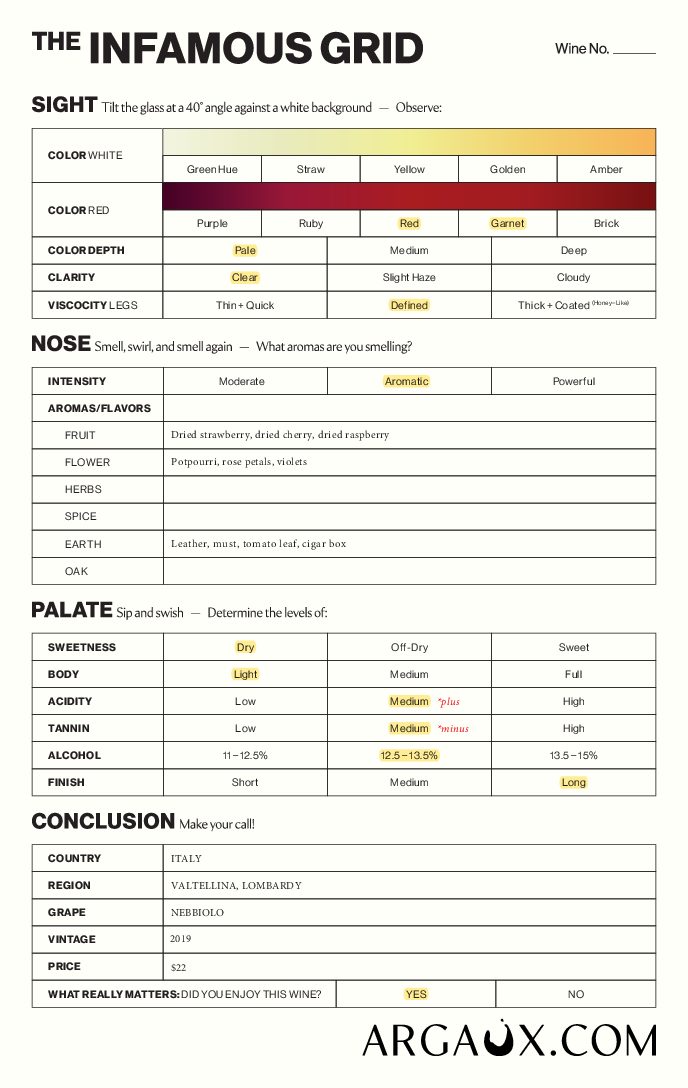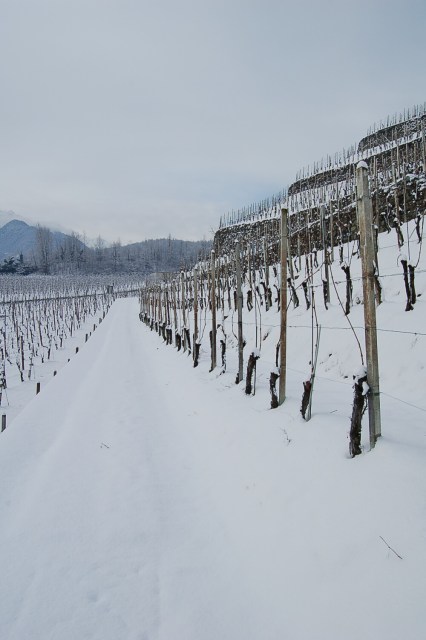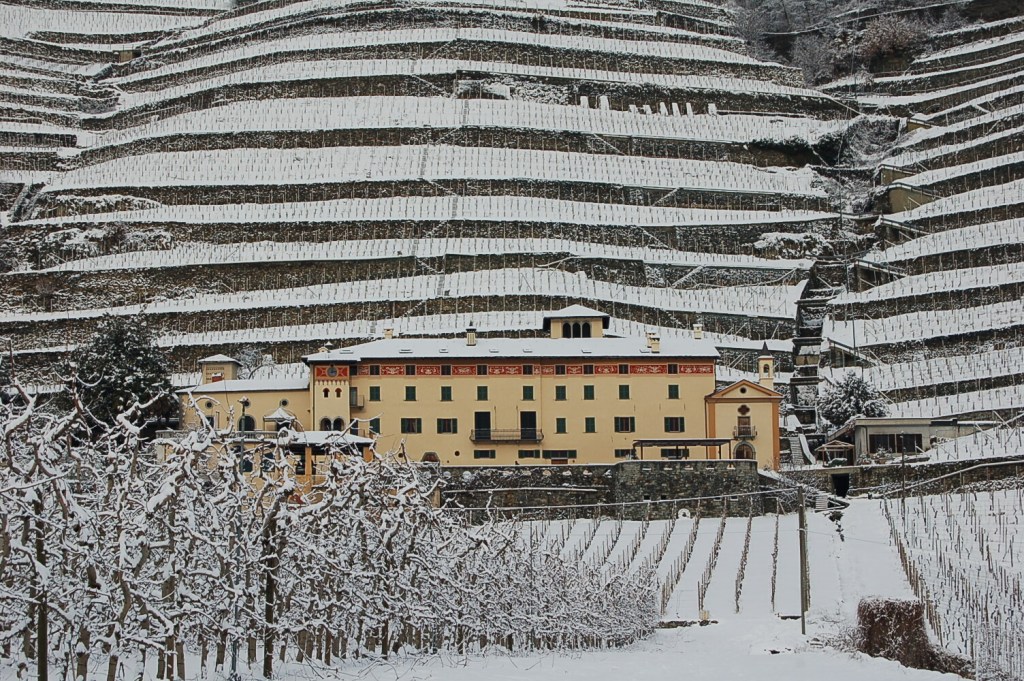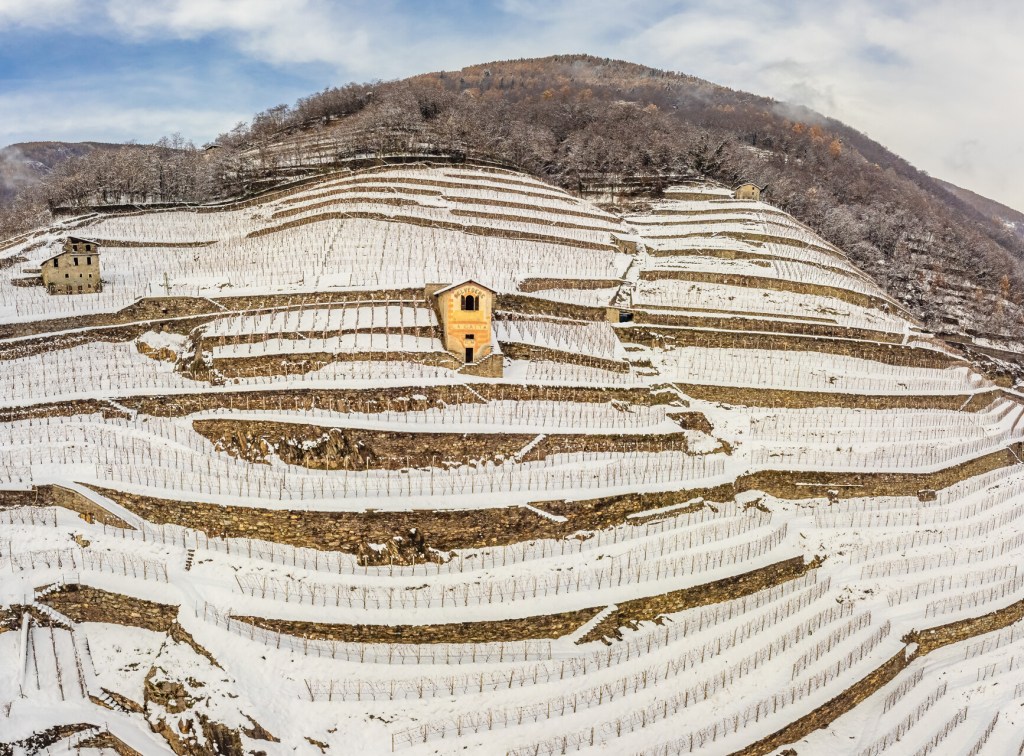2019 Casa Vinicola Triacca ‘Gaux Dopo’ Nebbiolo
This Alpine Nebbiolo is energetic, zippy, and remarkably fresh. The stainless steel fermentation maintains the wine’s bright fruit character, floral quality, and natural suppleness.
Sustainable farming practices and only 100 cases produced!
$22.00
Out of stock
Pairs with
The “La Gatta” estate was originally built in the 1500s as a Dominican monastery and was later purchased as a summer home for the aristocratic de Gatti family, from which the name derives. The Triacca family acquired the old monastery in 1969, which is surrounded by 13 hectares of vigorous vines grown on the steep hillsides of the Italian Alps. In 1987, Domenico Triacca acquired 2,000 square meters of vineyards in Valgella, one of the most highly sought after vineyard areas in Valtellina and built himself a small cellar to start producing and aging wines from his own vineyards. Today, Lucca Triacca runs the estate and is known as one of the most innovative Valtellina producers.
Valtellina lies in an Alpine valley in the northern part of the country in the Lombardy region. It actually forms part of the border between Italy and Switzerland and historically has been Swiss and Austrian territory before becoming part of Italy in 1859. The area benefits from a cool, mountain climate, though ‘La Breva,’ a gentle wind that originates over Lake Como, moves warm air into the valley and helps promote pollination in the spring. The vineyards lie on extremely steep slopes and tiny terraces (similar to the Mosel or Alto Adige) requiring it all to be worked by hand. Some suggest that Nebbiolo may have even originated in Valtellina! Today, it is known for its bright, cherry-scented Nebbiolo, known here as Chiavennasca (after the nearby town of Chiavenna).
“Nebbiolo from Valtellina has always been one of my favorite expressions of this grape. It’s Alpine wine; a much lighter and fresher version of your typical Nebbiolo from Piedmont that you might be more familiar with. They are high acid, food-friendly wines that are often significantly more affordable than your average Barolo. These wines are great with good company, a cheese & charcuterie plate, and some light pasta.” – Lexi Jones, Director of Imports
Related Items
-
2023 Scribe Carneros Pinot Noir
$55.00Scribe, a pioneer of terroir-driven winemaking in Sonoma, makes one of our all-time favorite Pinots. Invite a few close friends over for an intimate dinner, light some candles, play some jazz and serve wild mushroom risotto topped with fish, chicken or as is! This Pinot will go with it all.
Organic farming practices, hand-harvested, native yeast fermentation (30% whole cluster), and aged 7 months in neutral oak with minimal intervention.
-
2021 Cavallotto Dolcetto d’Alba ‘Vigna Scot’
$33.00A charming and approachable red from Piedmont, this Dolcetto offers soft tannins and a vibrant balance—an ideal introduction to Italian wine. Medium-structured, it reveals classic notes of blackberry and cherry, with an aromatic floral bouquet and subtle earthy complexity. Enjoy it now or over the next five years with everything from pizza and pasta to prosciutto, tartare, and aged cheeses.
Organic farming practices, native yeast fermentation, aged for 6 months in large Slavonian oak and only 677 cases produced.
-
2021 Clos La Coutale Cahors Malbec (half-bottle)
$17.00Cahors is the sneakily sophisticated but humbler country cousin of Bordeaux. It’s the ancestral home of Malbec and it captures everything that makes this estate beloved by sommeliers, importers, and everyday drinkers alike: depth without heaviness, structure without austerity, and earthy charm wrapped in juicy fruit. This is one of our favorite party picks.
Organic farming practices and aged for a year in French oak barrels.
-
2019 Domaine Alain Burguet Gevrey-Chambertin ‘Lavaux Saint Jacques’ Premier Cru
$225.00This rustic Pinot Noir hails from a premier cru climat just west of Gevrey-Chambertin. The palate is medium-bodied with rich and concentrated flavors, nice acidity, and integrated tannins. Aged for 19 months in barrel (50% new oak).
Like all of Burguet’s wines, this bottle is produced from organic (converting to biodynamic) fruit, native yeasts, and is bottled unfined / unfiltered. Only 50 cases produced.










